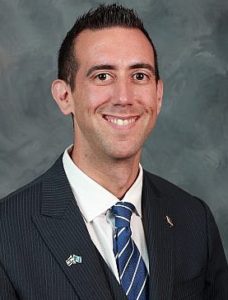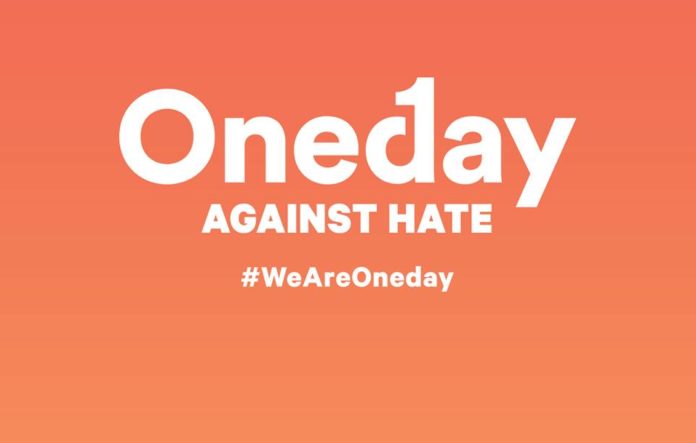Earlier this month members of the historically Jewish fraternity Alpha Epsilon Pi, AEPi discovered swastikas painted on a campus building at Appalachian State University in North Carolina.
Last April at Towson University in Baltimore two members of AEPi were allegedly assaulted while walking in the pre-dawn hours. Police are now investigating it as a possible hate crime.
“Our chapters are so proud of their Jewish heritage and AEPi puts it out there so publicly and visibility. Oftentimes they are on the front lines of hate and anti-Semitism,” Jonathan Pierce, media spokesperson for AEPi, told The Times of Israel.
Now, AEPi and Zeta Beta Tau (ZBT), another historically Jewish fraternity, are joining with numerous organizations in promoting OneDay Against Hate.
The campaign, which launched October 1, aims to speak out against hate and initiate what it calls “conversations of understanding.”
Aside from the nationwide launch, which took place primarily on social media, participants in 24 cities including Atlanta, Dallas, Detroit, Las Vegas and Philadelphia held on-the-ground events. Even the Mexican consulate joined in, hosting 30 events across the US.
The idea for the campaign arose after torch-bearing and Confederate flag-waving white supremacists marched through Charlottesville, Virginia, in August 2017 chanting: “Jews will not replace us.”
“The problem in the Jewish community is we constantly have the same conversations amongst ourselves. We are preaching to the choir. We want to go beyond that. We don’t want this program to be one and done…”

At the time several top executives at organizations including the Anti-Defamation League, NAACP, the Human Rights Campaign and the African Middle Eastern Leadership Project decided it was vital to launch a sustained response to counter the hatred the Unite the Right events exposed. But the challenge will be to carry the campaign forward beyond the launch.
“The problem in the Jewish community is we constantly have the same conversations amongst ourselves. We are preaching to the choir. We want to go beyond that. We don’t want this program to be one and done; that you spend an hour or so on it and that’s it,” said Laurence Bolotin, CEO of ZBT.
Anti-Semitic incidents in the US surged nearly 60 percent in 2017, according to a February 2018 Anti-Defamation League report. It was the largest single-year increase on record and the second highest number reported since the ADL started tracking incidents in the 1970s. According to the ADL, the increase in numbers came in part because of a rise of incidents in schools and on college campuses, which nearly doubled for a second year in a row.






















